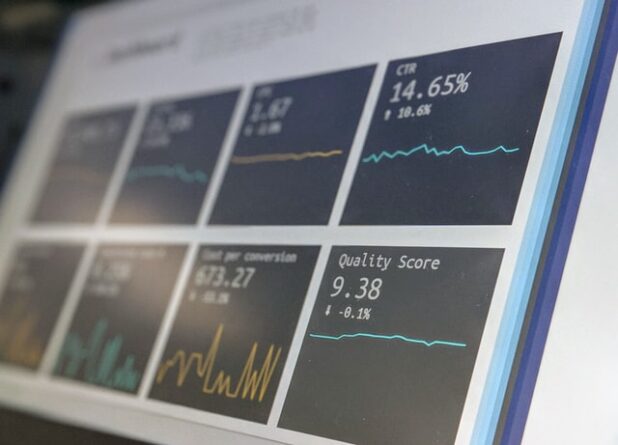The biggest fear for all content Creators and website owners is a sudden drop in traffic. At first, you don’t know what’s going on. You experience panic, fear, and overall – confusion. That’s the moment where you need to take a deep breath and take a closer look at the situation. For every drop in traffic, there’s a reason behind it – you just need to find a way to get to the problem. In this article, we’ll share the ways you can diagnose traffic drops using Google analytics. There are simple procedures that can lead you to the cause of this problem and help you get back on track as soon as possible.
What is Google Analytics?
Google has provided its users with a vast array of tools to help them maintain their pages. One of them is Google Analytics – you can use it to monitor your website activity and check stats regarding session duration, source of traffic, bounce rate, etc. This tool is free – to some extent. Small businesses can use this tool free of charge. However, the more professional features come with a fee. To start using Google Analytics, make sure you enable it in your Google Admin console.
How to diagnose traffic drops – take a deep breath and start
There are several steps you can take to get to the bottom of your problem. It’s essential to be realistic and objective and start this process slowly and in detail. Let’s see what things you can do to diagnose traffic drops.

Drops can happen; just be sure to diagnose them fast and react accordingly.
PPC traffic or Google organic traffic?
First, don’t jump to the conclusion that you have a problem with organic traffic. That is often not the case – sometimes, drops come from paid traffic. That’s why you should start this diagnostic process by checking– organic traffic or PPC traffic. Also, don’t forget other traffic sources – direct visits, email, social, etc. Checking them all out may lead to the solution to your problem.
Locate the problematic pages
If there are one or more pages that have experienced a drop in traffic, the first thing you should do is to find out which one it is. You can easily do that by using Google Analytics.
Check out the ‘All Traffic’ section and click ‘Channels’. Under the ‘Organic’ section, select the period you want to check and compare it to the previous period. You should be able to see your landing pages and the way they have performed in the last week or month. Commonly, the drop is related to the most popular pages on your website. They should be at the top of the list. However, if the drop has affected all your website pages, it’s a sign of a bigger problem. Perhaps you received a Google Penalty, or you were unaware of a recent update.
Make sure it’s not a seasonal thing
Sometimes, some businesses are less popular at certain times of the year. For example, companies that sell Christmas lights or decorations will not get the same amount of traffic during summer. You can determine this based on your previous experience and industry knowledge, but also by using Google Analytics. Just be sure to compare the traffic of the exact weeks/months in two or more years. It will show you if you’re dealing with a seasonal drop or there’s another problem to look for.

The way your website performs may be affected by trends and seasons.
Check the users responsible for the drop
Another way to diagnose traffic drops is to take a look at users responsible for the traffic drop. There are two types of people visiting your website – new users and returning users. Let’s look at both:
New users
If fewer new users are coming to the website, the problem is in the way they find it in search results. This is the time to check:
- your keywords – these are an essential factor in ranking your pages on Google. Sometimes, it is necessary to pick a fresh set of keywords as the market and people visiting the pages change;
- updates – very often, Google comes up with an update that can affect your rankings because the old optimization methods don’t comply with the new update;
- penalties – if a penalty is applied to your website by Google, it will affect the way Google ranks your pages.
Returning users
If you notice returning users are not returning anymore, you need to take a closer look at your website user experience. The most common problems are broken pages and slow loading speed. These may disappoint returning users, forcing them to leave the website and find an alternative destination. Be sure to check all of the factors that help improve the user experience and do your best to bring it to perfection.

Don’t disappoint old and new users – make your website flawless.
Combine GA with Search Console for complete results
When you need to diagnose traffic drops and take a closer look at your website, Google Analytics is a great option. However, you should complete this investigation by using some other great tools – one of them being Search Console. Only then can you be sure you have examined all the aspects of your problem to find a fast solution. Google Analytics will help you explore the user-oriented aspects of the traffic. On the other hand, Search Console is more focused on search-engine related issues. It can tell you more about your website’s visibility, SERP presence, keyword problems, etc. Combining two or more tools will give you an in-depth report on your website’s performance and lead you to the most effective solutions to get back on track and welcome many new visitors.
Martha Serth is a digital marketing expert and a social media manager. She contributes to the blog at digitaldot.us sharing her knowledge and helping small businesses grow with good marketing campaigns. She also enjoys writing on other different topics, such as traveling and home organization.
The post Using Google Analytics to diagnose Traffic Drops appeared first on SiteProNews.


0 Commentaires